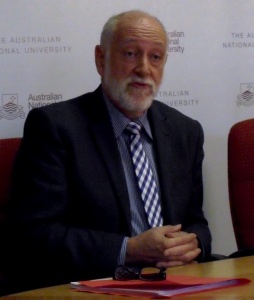
However the ANU has denied that Prof Walter was “instructed” to take leave or to “consider his options”.
“Prof Walter has been under a very considerable quantity of pressure in recent days and months. He has taken leave, with the support of the University,” an ANU spokeswoman said.
According to School of Music staff, the instructions from the ANU came at 5pm yesterday and followed a day of waiting after an early morning letter from Prof Walter to the Chancery in which he expressed his preference to take leave because it had become difficult for him to work with the university over the issue of sackings and restructurings.
It is understood that the university has indicated to the professor that his return to work would be contingent upon his agreeing to implement the changes announced last week that will see all professional and general staff stood down and their positions re-advertised.
Staffers, including some who had previously been critical of Prof Walter’s apparent endorsement of the ANU’s cuts, suggested that now, far from having been “the bad guy”, he was in fact “the good guy”, who had bent over backwards to accommodate the University, purely in order to save the school.
“If it hadn’t been for Adrian,” one lecturer said, “there mightn’t even be a school of music this week.”
Prof Walter has declined to take phone calls.
The ANU spokeswoman said the decision to take leave was made following a cordial meeting between university officers and the professor.
Today’s events come at the end of a week of heightened tensions in the music community. Before a Canberra Symphony Orchestra concert at Llewellyn Hall this evening, the CSO Chairman, Prof Deane Terrell, urged those present to get involved either by addressing a letter directly to the Chancery or by subscribing to a petition that has already seen more than 8000 Canberrans protest the university’s treatment of music studies.
In a rare show of bipartisan support, both sides of the house in the ACT Legislative Assembly supported a motion by opposition arts spokesperson, Vicki Dunne, expressing support for the School of Music and recognition of its contribution to the Canberra community as well as the local, national and international music industries.
Who can be trusted?
In a world of spin and confusion, there’s never been a more important time to support independent journalism in Canberra.
If you trust our work online and want to enforce the power of independent voices, I invite you to make a small contribution.
Every dollar of support is invested back into our journalism to help keep citynews.com.au strong and free.
Thank you,
Ian Meikle, editor




Leave a Reply